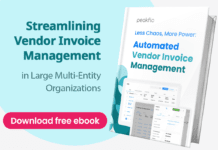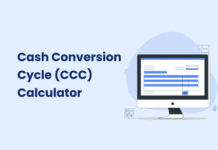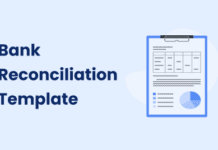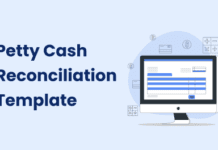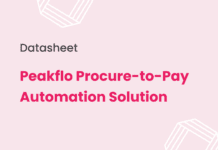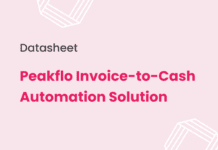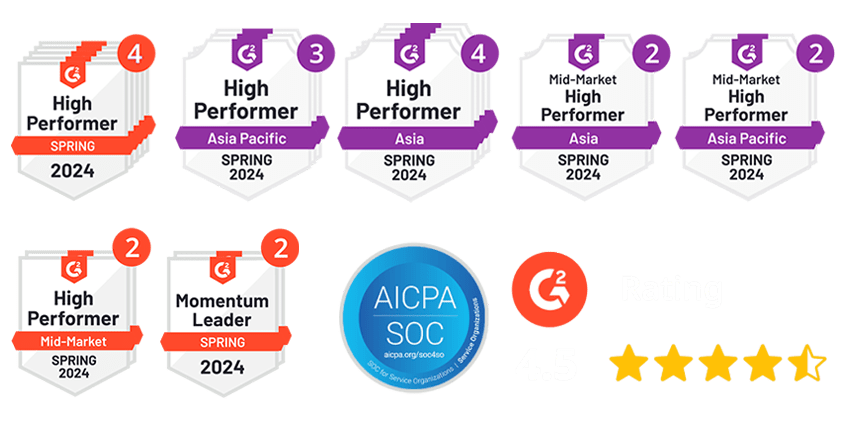In recent years, the finance and accounting profession has experienced significant technological advancements. Innovations such as automation, cloud computing, blockchain, financial analytics, and artificial intelligence are revolutionizing accounting systems, workflows, and practices.
While the fundamental principles of accounting remain unchanged, these new technologies are profoundly influencing day-to-day tasks and responsibilities. Today’s accountants use a variety of advanced tools to enhance productivity, gain insights, and create strategic value.
As technology continues to evolve, the accounting function is becoming more data-driven, integrated, and agile. Nonetheless, human skills such as judgment, communication, and strategic thinking remain essential. Achieving the right balance between technology and human expertise is an ongoing challenge for the modern finance and accounting industry.
Let’s delve into the key technological changes that are reshaping best practices and the evolving role of accountants in today’s digital age.
What is Modern Accounting?
Modern accounting involves using technology to automate and improve the entire accounting process, from gathering data to verifying it. This approach focuses on automation, digitalization, and using data to make decisions.
What is Accounting Technology?
Accounting technology refers to a variety of tools, software, and systems that are essential in accounting. These tools use advanced technologies like artificial intelligence, cloud computing, machine learning, blockchain, and automation to simplify accounting tasks and make them more efficient.
Accounting technology has greatly changed how accounting is done, moving from manual, paper-based processes to streamlined, digital workflows. Tasks that used to take weeks can now be completed in minutes, thanks to cloud-based software.
Overall, accounting technology helps accounting teams work more efficiently, with greater accuracy and saves them time.
Impact of Modern Technology on Accounting
Over the past few years, we’ve witnessed a significant technological revolution that has impacted various aspects of business operations, including accounting.
One major change is the adoption of accounting software, which replaces traditional paper ledgers and books. These software packages offer specialized features tailored to different business needs.
Computerized Accounting Systems
The most notable impact of technology is the use of computerized systems to track and record financial transactions. Instead of relying on paperwork and manual spreadsheets, businesses now use computer systems to quickly generate financial reports based on individual transactions. The advantages of computerized accounting systems include:
Increased Functionality: Computerized accounting enhances a business’s functionality by helping accountants prepare reports and operations, providing an accurate overview of current operations.
Improved Accuracy: These systems reduce errors and offer more reliable financial information by automating transaction recording and data transfer, minimizing the risk of human mistakes.
Faster Processing: Accountants can process large volumes of financial data quickly through computerized accounting systems, streamlining the entire accounting cycle.
Modern Accounting Software
Accounting software can be installed on computers to seamlessly manage a company’s financial data. It tracks and processes accounting transactions and typically includes modules for accounts payable, accounts receivable, payroll, trial balance, and more.
Automation has significantly impacted the field of accounting, revolutionizing how tasks are performed and managed. Automation software and accounting information systems have become prevalent, allowing accountants to streamline and automate routine tasks like data entry, invoice processing, expense reporting, and payroll management.
Optical character recognition (OCR) technology, for instance, can extract information from physical documents and receipts, saving time and reducing errors. Accounts payable software can automatically match invoices to purchase orders and process payments, enhancing efficiency.
By automating mundane responsibilities, accountants can dedicate more time to complex assignments and strategic decision-making, ultimately adding more value to their organizations. Automation also reduces human error associated with manual workflows. According to McKinsey, up to 70% of finance activities could be automated using currently available technologies, indicating the substantial impact automation has had and will continue to have on the accounting profession.
Emerging Technologies that are Transforming Accounting Processes
Cloud Computing
Cloud computing allows accountants to store and access data and applications online instead of on local computers. This technology offers flexibility and cost-effectiveness, as users can pay for services as needed. It also enables real-time collaboration and data sharing among team members, improving efficiency.
Data Analytics
Data analytics uses software to analyze and interpret data, providing insights for decision-making. In accounting, it helps identify trends and patterns in financial data, informing financial strategies and risk management practices.
Artificial Intelligence
Artificial intelligence (AI) mimics human intelligence in machines. In accounting, AI automates tasks like data entry and fraud detection, saving time and reducing errors. AI tools also analyze financial data to provide predictive insights and streamline processes.
Blockchain
Blockchain is a secure, decentralized ledger technology that records transactions across multiple computers. In accounting, it improves transparency and traceability in financial transactions, reducing fraud and errors. It also streamlines auditing and compliance processes.
Robotic Process Automation (RPA)
RPA uses software robots to automate repetitive tasks. In accounting, RPA automates data entry, reconciliation, and reporting, freeing up time for strategic activities. It also improves accuracy and efficiency.
Big Data
Big data refers to the large volume of data organizations generate and collect. In accounting, big data analytics identifies trends and insights from large datasets, informing decision-making and strategic planning.
Machine Learning
Machine learning enables machines to learn from data without being programmed. In accounting, machine learning detects fraud, predicts trends, and automates tasks, improving efficiency and accuracy.
10 Benefits Of Accounting Technology
Accounting technology offers several benefits that streamline financial processes and enhance overall efficiency:
- Improved Accuracy. Automation reduces human errors in calculations and data entry, ensuring more accurate financial records.
- Time Savings. Automated processes and data management save time, allowing accountants to focus on higher-value tasks.
- Enhanced Reporting. Technology provides real-time access to financial data, enabling faster and more accurate reporting.
- Cost Efficiency. Automation reduces the need for manual labor and paper-based processes, leading to cost savings.
- Better Decision Making. Access to timely and accurate financial information helps organizations make informed decisions.
- Increased Security. Advanced security measures protect financial data from unauthorized access or loss.
- Compliance. Accounting software helps ensure compliance with regulatory requirements and reduces the risk of errors in financial reporting.
- Scalability. Technology can easily scale to accommodate the growing needs of a business without significant manual effort.
- Remote Access. Cloud-based accounting software allows access to financial data from anywhere, enabling remote work flexibility.
- Seamless Integration. Accounting technology can integrate with other business systems, streamlining processes and improving data flow.
The Future of Accounting
The future of accounting will see continued transformation due to technology, but the profession will remain essential. Innovations will change how accountants work and emphasize their role in providing business insights. However, technology cannot replace human judgment, strategic advice, and relationships. Education and ethics will continue to be vital in the industry.
Change will persist, requiring accountants to continually learn and adapt to new tools and regulations. As systems become more intelligent and automated, accountants’ responsibilities will broaden. Fields like auditing and risk management will become more complex, demanding higher levels of skill and attention. The pressure to offer strategic value and take on a consultative role will grow throughout accountants’ careers.
Those who embrace change and seek opportunities will have a bright future in accounting. They will have faster career growth and make a greater impact. However, those who resist change and fail to adapt will find themselves falling behind. As technology advances, accounting will become more engaging, dynamic, and vital to business strategy. Accountants who use new tools, seek self-improvement and stay agile will find many opportunities ahead.
How Does Peakflo Help to Streamline Accounting Processes?
Peakflo stands out as a transformative tool in the realm of accounting, offering a comprehensive solution to modernize financial operations. Its integration capabilities with ERPs and accounting software create a seamless ecosystem for data transfer, enhancing efficiency and accuracy in financial management.
Peakflo’s ability to streamline accounting processes is particularly evident in its support for account reconciliation and fast-tracking the month-end close process. Automating these tasks, not only reduces the risk of errors but also saves valuable time for accounting professionals, allowing them to focus on more strategic activities.
Furthermore, by leveraging technology and automation, the solution enables accountants to stay ahead of the curve, adapting to the evolving landscape of financial management. Its user-friendly interface and robust features make it a valuable asset for any organization looking to enhance its accounting processes.
Peakflo is not just a tool for accounting; it is a catalyst for transformation. It empowers organizations to embrace digital innovation, streamline their financial operations, and drive business growth. As the accounting profession continues to evolve, Peakflo remains at the forefront, helping organizations navigate change and achieve their financial goals.









![Why AI Sales Calls Are Making Good Sales Reps Even Better [2025 Guide] ai sales calls](https://cdn-kmjmp.nitrocdn.com/YvtqmrsiHUxqerlSiZgbfzqqTARWTElr/assets/images/optimized/rev-834053b/blog.peakflo.co/wp-content/uploads/2025/09/65168cf6-3001-4733-8cbc-12d5684cf449-218x150.webp)







